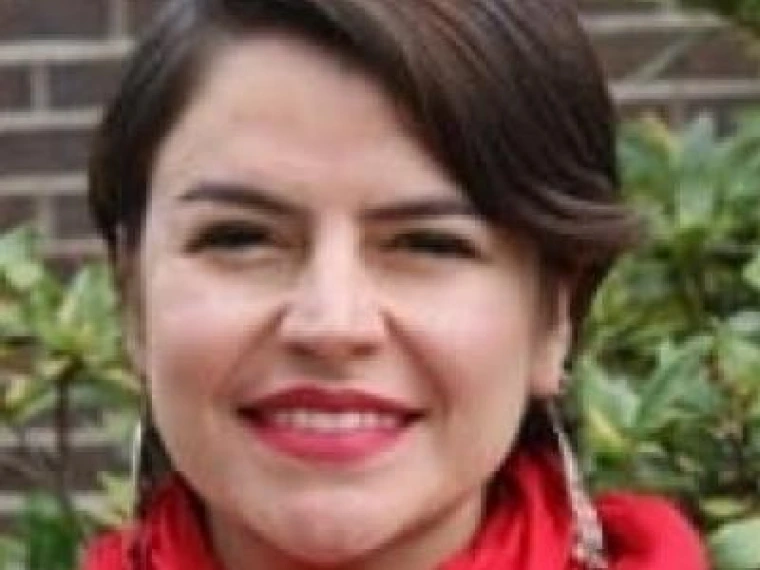This lecture focuses on discourses of sexuality and gender among practitioners in Puerto Rico but with particular attention to musicians and dancers of the Bomba diaspora in the United States. In popular narratives of Bomba men have historically been framed as musicians while women have been traditionally been both archived and presented as dancers and singers. Invoking the communitarian context out of which Bomba was framed this presentation interrogates the point of entry of female practitioners who challenge these gendered positionalities with regard to drumming and dancing. Focusing on the critical interventions of these practitioners I explore contemporary performances of Bomba in the diaspora as a tradition in which feminist and queer sociopolitical histories and aesthetic practices thrive.
Micaela Díaz-Sánchez is Assistant Professor in the Department of Spanish, Latina/o and Latin American Studies at Mount Holyoke College where her courses include “Latina Feminisms,” “Performance in the Americas,” “Afro-Latina/o Diasporic Performance,” “Intro to Latina/o Studies,” “Race and Representation in Latina/o Film.” Díaz-Sánchez received her Ph.D. from Stanford University’s Department of Theater and Performance Studies in 2009. While at Stanford she focused on directing and performing in original work by queer writers of color while working in community-based performance projects throughout the San Francisco Bay Area. After Stanford Micaela was a Mellon Postdoctoral Fellow in Latina/o Studies with an affiliation in African American Studies at Northwestern University. At Northwestern she was selected as “Faculty Member of the Year” by the Multicultural Student Affairs Office for bridging student affairs with her work in the classroom as well as for serving as a mentor to students of color on campus. While in Chicago she immersed herself in local performance communities as a practitioner of two diasporic musical traditions, Afro-Mexican Son Jarocho and Afro-Puerto Rican Bomba which she performed professionally as part of a Humboldt Park-based ensemble. Her article, "Impossible Patriots: The Exiled Queer Citizen in Cherríe Moraga’s ‘The Hungry Woman: A Mexican Medea" was published in Signatures of the Past: Cultural Memory in Contemporary North American Drama (2008). Her article on performance artists, Jesusa Rodriguez and Celia Herrera-Rodriguez, entitled “Body as Codex-ized Word”/ Cuerpo Como Palabra (en-)Códice-ado”:Chicana and Mexican Transnational Performative Indigeneities is published in Performing the US Latina and Latino Borderlands (2012). She is currently working an article focusing on gender and sexuality in the contemporary practices of Bomba as well as an article about Chicana/o cultural producers as part of the African diaspora through what she conceptualizes as “Afro-Chicana/o Diasporic Aesthetics.” She co-authored an article entitle, "The Son Jarocho as Afro-Mexican Resistance Music" with Alexandro Hernández in The Journal of Pan African Studies(2013). Her article “Yemaya Blew that Wire Fence Down: Invoking African Spiritualities in Gloria Anzaldúa’s Borderlands/La Frontera: The New Mestiza”will appear in an forthcoming anthology entitled YẸMỌJA: Water Goddess, Fluidity and Tradition (2013). She is currently preparing her manuscript, tentatively titled “(In) Between Nation and Diaspora: Chicana and Mexicana Performance.”
Co-sponosrs are: Rhetoric, Composition, and the Teaching of English, Africana Studies Program, and Gender and Women's Studies


